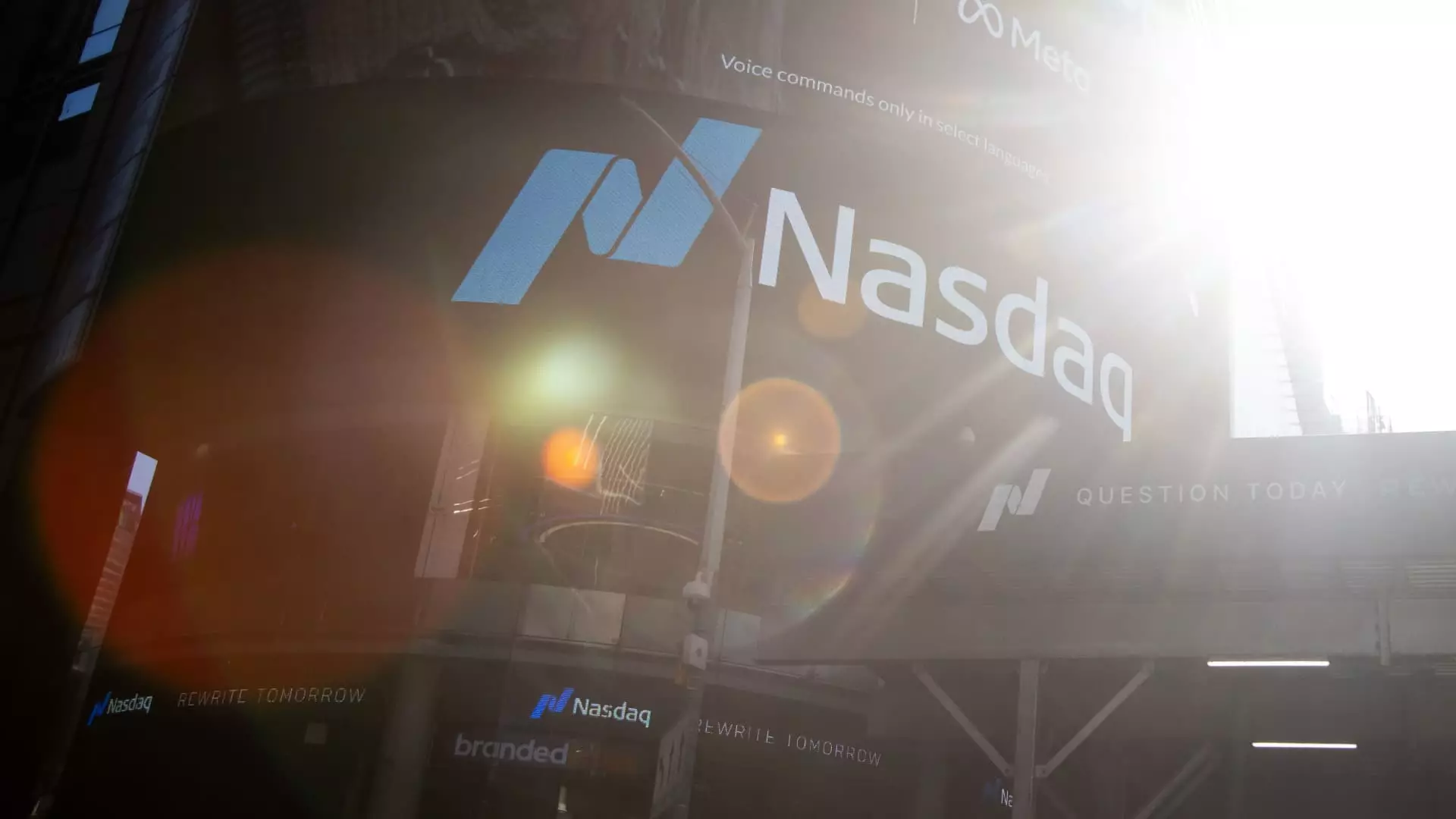The financial markets are like a living organism, constantly evolving and adapting to external and internal forces. This living nature of the market is particularly evident during pivotal moments like elections, fiscal policy changes, and technological advancements. In a recent session of the CNBC Investing Club led by Jim Cramer, we saw distinct traits of this dynamism manifesting through market rotations and sector performances.
The recent surge of the Dow Jones Industrial Average past 44,000 points is more than just a numerical milestone; it signifies a broader trend in market rotations. Unlike previous sessions where large tech companies dominated the headlines, Monday’s trading session presented a shift. High-profile technology stocks such as Apple, Amazon, and Nvidia, which typically attract substantial investor attention and capital, were pushed aside as funds moved into sectors anticipated to benefit from the new political landscape post-election. With an incoming administration echoing pro-business sentiments, sectors such as financials and industries blossomed, indicating a distinctly risk-on approach from investors.
Investors are betting that companies tied closely to the economy’s revival, like those in finance and industrials, will score big under policies expected to encourage growth and deregulation. For instance, financial giants like Morgan Stanley and Wells Fargo are projected to not just stand their ground but potentially achieve record closures. In parallel, industrial players like Honeywell and company holdings such as BlackRock are hitting remarkable highs due to favorable rhetoric surrounding investments and cryptocurrencies.
The prevailing sentiment in the market is palpably optimistic, particularly as the S&P 500 hovers near record highs. A revision by Oppenheimer raised their year-end price target for the index from 5,900 to 6,200, underlining the belief in sustained growth driven by seasonal trends. However, this optimism is accompanied by caution—a frequent narrative in the investment space. Indicators, such as the S&P 500 Short Range Oscillator, suggest that the market may be overbought, advocating a careful approach towards buying and selling.
As the market rallies, it becomes essential for investors to consider potential corrections. In line with this disciplined approach, we saw earlier profits taken on stocks like Honeywell, Morgan Stanley, and Wells Fargo ahead of the anticipated overextension. This disciplined trading could preserve profits while allowing for adjustments based on market volatility.
As we look forward to the upcoming earnings reports from major companies, our focus shifts to key players like Home Depot and Tyson Foods. Home Depot’s quarterly earnings are particularly noteworthy, with projections indicating a decline in same-store sales. This figures pose questions not only regarding the company’s performance but also about the broader implications on consumer spending and sentiments in the home improvement sector. The housing market remains a significant influence on Home Depot’s success, and analysts anticipate that improved mortgage rates might inject the much-needed consumer confidence to stimulate sales.
Additionally, the upcoming reports from companies like Shopify, AstraZeneca, and Disney will be essential in painting a holistic picture of the market. Each of these earnings reports will provide investors with a wealth of information to navigate the impending changes.
For members of the CNBC Investing Club, the importance of timely and informed trading is paramount. Alert systems designed to provide advance notice of trading actions create a disciplined environment for managing investments. Yet, it’s essential to remember that receiving information does not equate to financial liability or a guarantee of market performance. The complexities of market forces require investors to be vigilant, educated, and ready to act based on both predictions and realities in an unpredictable financial landscape.
As we learn from the market’s ever-changing environment, adaptability and informed decision-making are not just advantageous but necessary for successful trading in modern finance.

Leave a Reply